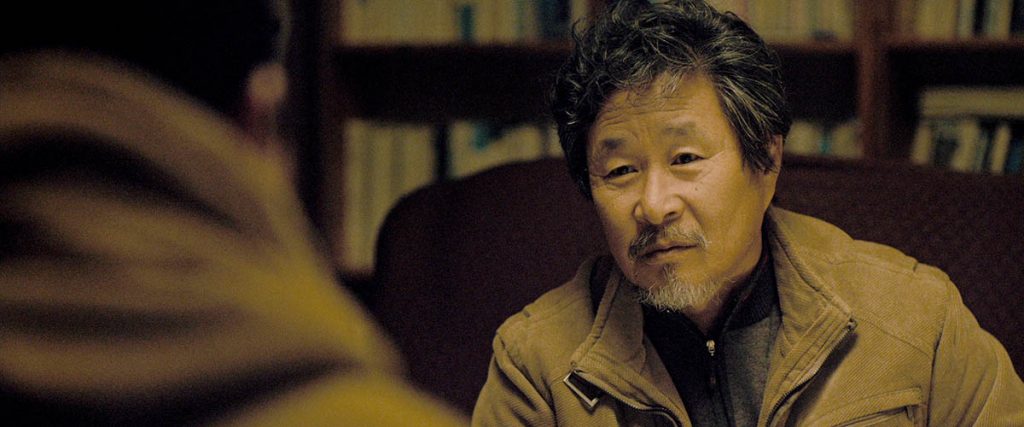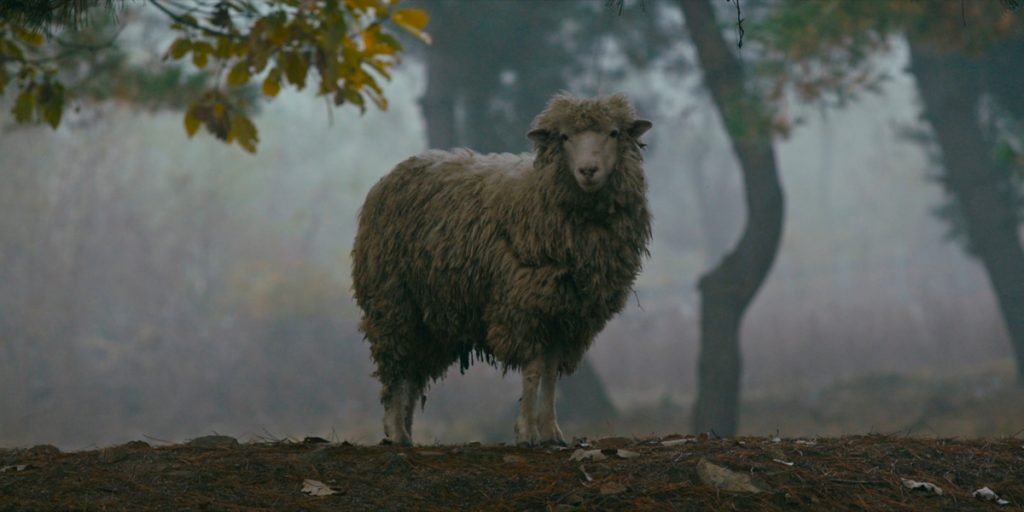Visually ravishing and exquisitely detailed, A Distant Place observes a deep, beautiful love knocked down by society and its horrific bigotry.
It is often the case that the most powerful films are those that build emotions quietly and slowly, and this can, for the most part, definitely be said for A Distant Place. The film is stripped back to the most delicate of levels, with writer/director Park Kun-young (To My River) favouring awe-inspiring aesthetics and a layered screenplay over obvious or loud emotional blowouts. Park might be guilty of juggling too many plot points, which causes the narrative to become scattered on occasion, but the romantic undertones situated amidst homophobia still cut deep. Starting with a close-up of sheep’s wool and ending with a strikingly beautiful and hauntingly hopeful shot, A Distant Place consistently engages with the audience on an emotional level.
Jin Woo (Kang Gil-woo) is living a quiet life with his young daughter Seol (Kim Si-ha), both of whom are treated like family by the ranch owner Joong Man (Ki Joo-bong) and his own family. A seemingly idyllic existence is complimented further by the arrival of Jin Woo’s male friend Hyun Min (Hong Kyung) who is in fact his long-term partner. Their dream of living together with Seol seems tangible for a moment, but trouble comes with the arrival of Jin Woo’s twin sister Eun Young (Lee Sang-hee), who is in fact Seol’s real mother. Park gives ample time to these characters and their feelings in A Distant Place: Jin Woo and Hyun Min’s relationship is simply gorgeous, with the love between them crystal clear from the moment they see each other again and embrace. The screenplay is a delightful mixture of humour and simple charm, bolstered by an impressive subtext which is created as much by unspoken words as the dialogue itself.
A Distant Place is not without its faults though. The plethora of plot points feels overwhelming at times and whilst each one is given decent time by Park’s screenplay, they inevitably end up feeling undercooked. Joong Man’s elderly mother is a well-rounded character, but her inclusion feels like it has the most disconnect with the other elements; it is a part of A Distant Place that feels strong when it’s on screen, but quickly fizzles out when it’s not. In addition to the ailing grandmother, there is the secret gay relationship and the mother-daughter-uncle triangle, and ultimately none are explored quite enough. The strongest of them all and indeed the most developed is this relationship between Jin Woo and Hyun Min; not only is it heart-warming and completely adorable, but the inclusion of homophobia amongst the wider society resonates firmly.

It is this homophobia which is embedded so impressively within A Distant Place. The inclusion is subtle and nuanced, coming to light when Eun Young effectively outs the two men in front of the other villagers. Initially welcomed with smiles and jokes when they were seen as just friends, Jin Woo and Hyun Min are shunned when their romantic relationship becomes public knowledge. This discrimination comes in the form of hushed discussions behind their backs and judgemental glances, making a point that homophobic abuse doesn’t only come in the most overt way. But the effect of the abuse is by no means lessened: an incredibly powerful scene late on in A Distant Place shows how it affects only the people on the receiving end of it, with the two men heatedly arguing about this discrimination that follows them everywhere, from the biggest cities like Seoul to the supposedly tranquil countryside. When Hyun Min suggests Jin Woo is being too demanding to live openly and without judgement, he understandably explodes.
Despite sometimes losing its footing in a narrative sense and occasionally being too subdued, A Distant Place connects on a very human level. Jung-hoon Yang’s (Everglow) expert cinematography situates the characters within the idyllic environment, finding beauty in silhouettes hugging by an expansive lake or danger as a snowstorm hits a field. He even finds time to observe domestic scenes from low camera angles with an Ozu-like stasis. And like an Ozu film, A Distant Place values everyday family scenarios as much as anything else, always hinting at hidden feelings and secrets amongst the general chatter. But the burning, longing passion means these secrets can’t stay hidden for long, and with a hint of hope, Park suggests that this freedom is necessary in striving for a better, more open future.
A Distant Place will be screened at the 2022 BFI Flare Film Festival both digitally and in person on 16-27 March, 2022. Read more reviews from BFI Flare!

